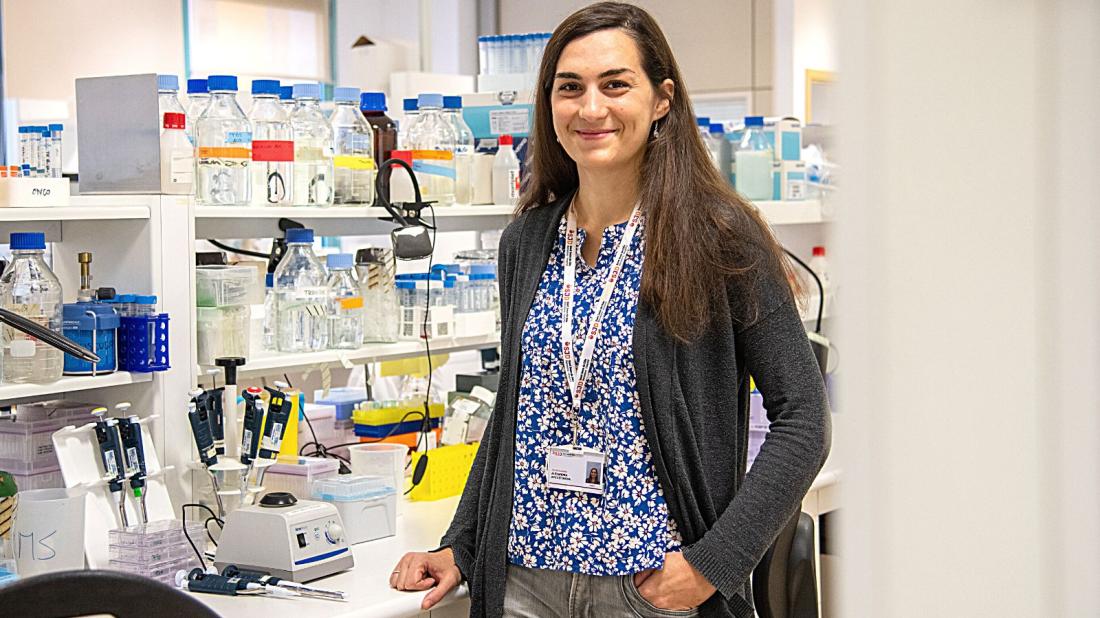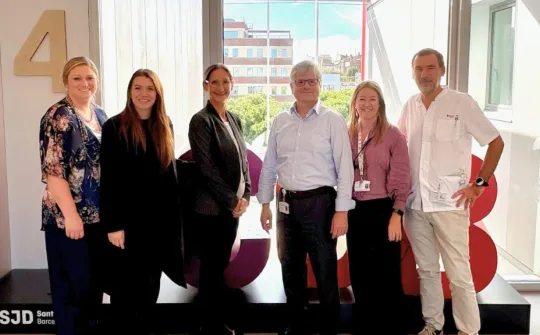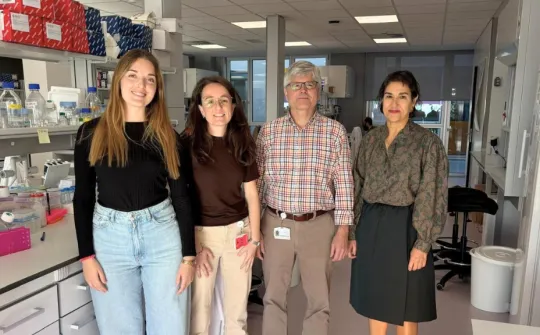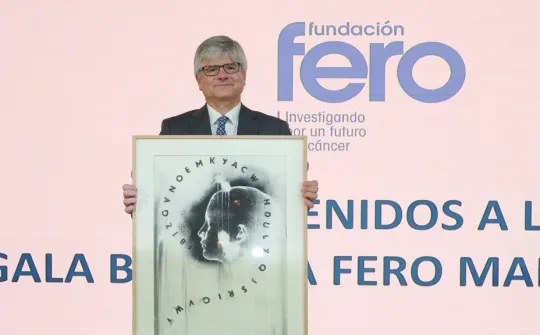A study on the origin of paediatric cancer receives 1.5 million euros from the European Research Council

The study, led by Dr. Alexandra Avgustinova, was launched with the help of the family of a patient at SJD Barcelona Children's Hospital.
Dr. Alexandra Avgustinova, a researcher with the Pediatric Cancer Center at SJD Barcelona Children's Hospital has received an excellence grant from the European Research Council (ERC) to conduct a study that will advance our knowledge of the origin of paediatric tumours.
This line of research began two years ago thanks to the encouragement of the family of a patient suffering from a malignant rhabdoid tumour and will now continue with the help of an ERC Starting Grant in the amount of 1.5 million euros.
Nearly 3,000 researchers applied for these grants. The ERC awarded 408 grants, only 15 of which went to researchers from Spanish institutions.
Dr. Avgustinova and her team at the "Epigenetics of Paediatric Cancer" group are trying to understand why certain cells with oncogenic mutations are capable of causing a malignant rhabdoid tumour during embryonic development and others are not.
Malignant rhabdoid tumours are diagnosed in young children, in most cases before the age of two. "They are considered genetically simple tumours", explains Avgustinova. "In many cases, the oncogenic mutation responsible for this is the loss of the SMARCB1 gene, with no other significant genomic alterations. However, we don’t know why certain cells that lose SMARCB1 during embryonic development are capable of causing a tumour whilst others are not".
What is unique about this study is that it focuses on the origin of the tumour in an attempt to understand how the first tumour cell forms and survives, so that with this knowledge we can try to discover more targeted, personalised and less toxic treatments. Most research teams focus on understanding how mutations affect cell function once a tumour has developed.
The encouragement of Blanca's family
The project that received this grant is part of a line of research into malignant rhabdoid tumours promoted by Blanca's family. Blanca was diagnosed with a rhabdoid tumour in 2016, when she was only 17 months old. To promote the study of this disease and raise the funds needed to do so, Blanca's family created a solidarity market, the Market Solidari, in 2017. Since then, they have managed to raise and contribute more than 150,000 euros to research.
Dr. Avgustinova hopes that the results of the research will not only shed light on the understanding of malignant rhabdoid tumours, but that it will also be possible to extrapolate them to other paediatric cancers as a first step towards a change in the study of paediatric tumours and their treatment.
Europe's leading research funding organisation
The ERC is Europe's leading funding organisation for cutting-edge research excellence. Established by the European Union in 2007, it funds creative investigators of any nationality and age to carry out research projects across Europe.
The scientific activity at the Pediatric Cancer Center Barcelona is part of one of the research programmes at the Sant Joan de Déu Research Institute, recognised within the PROP system of the Generalitat de Catalunya as a research centre of excellence.



